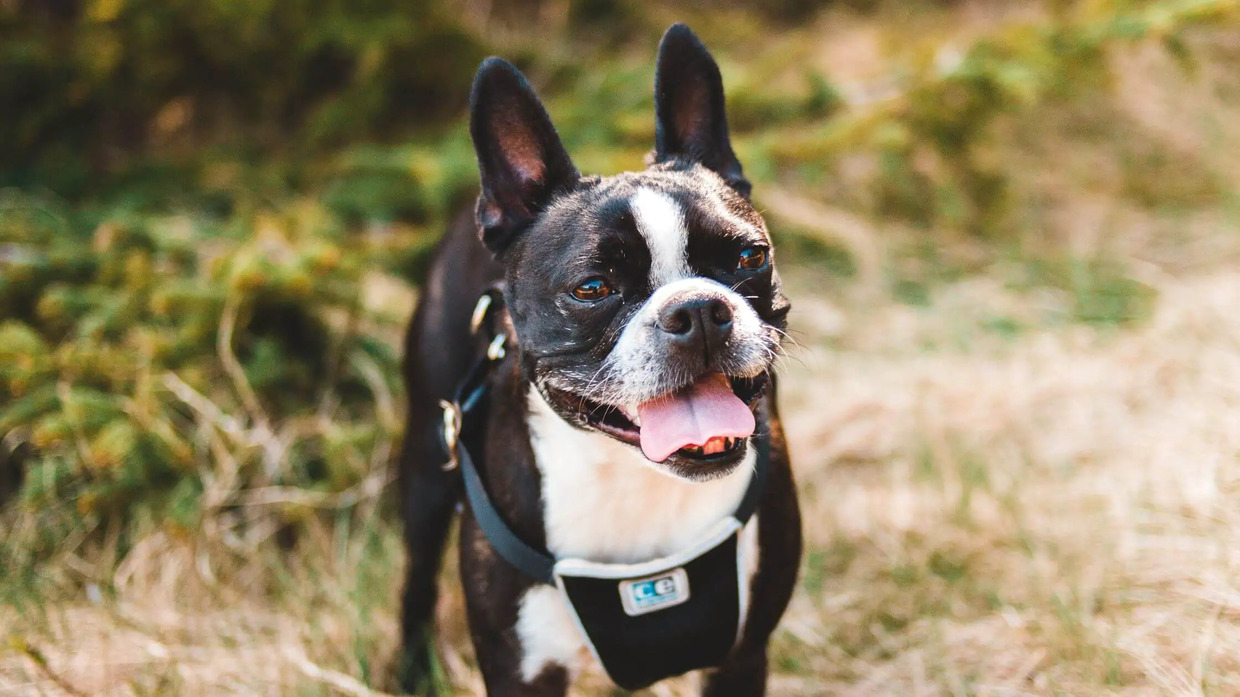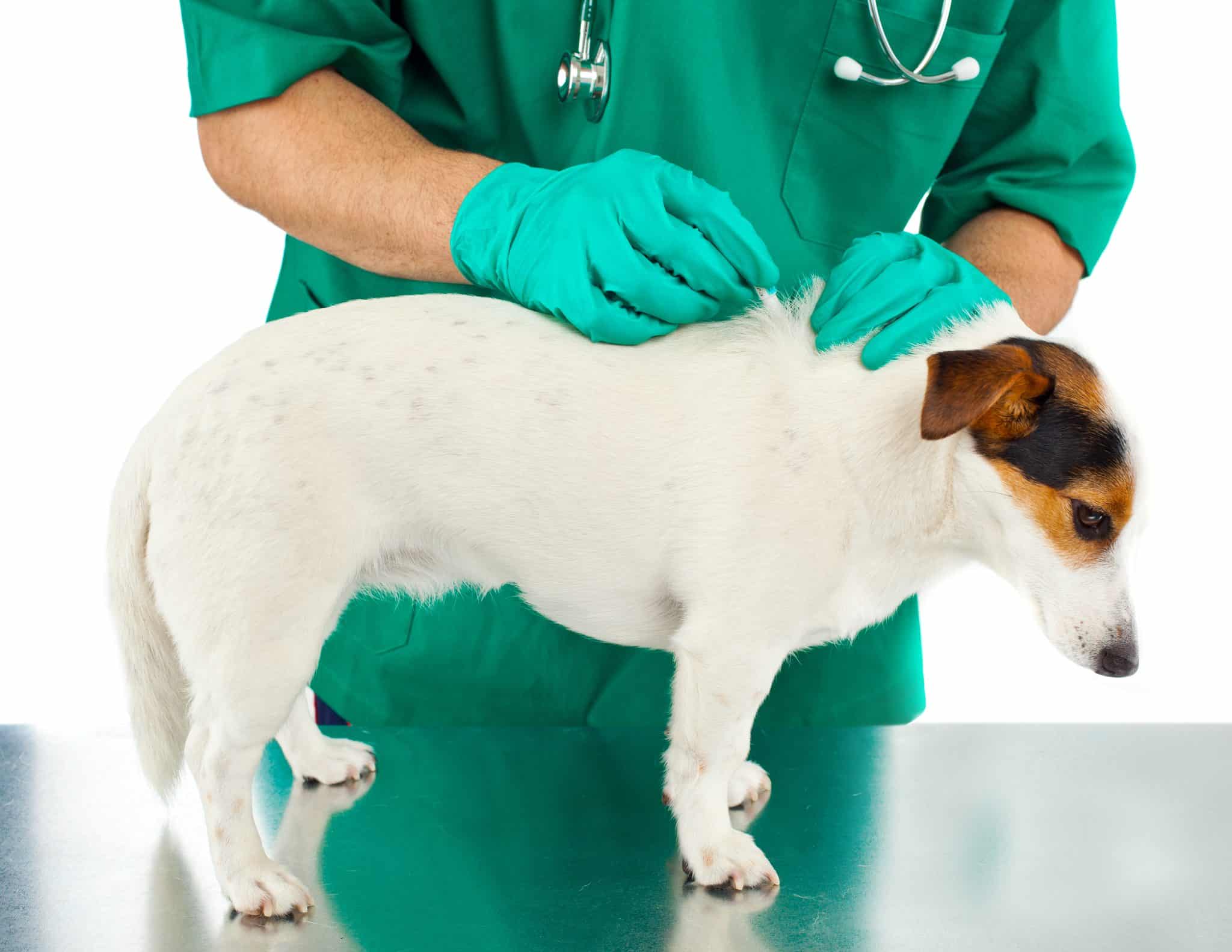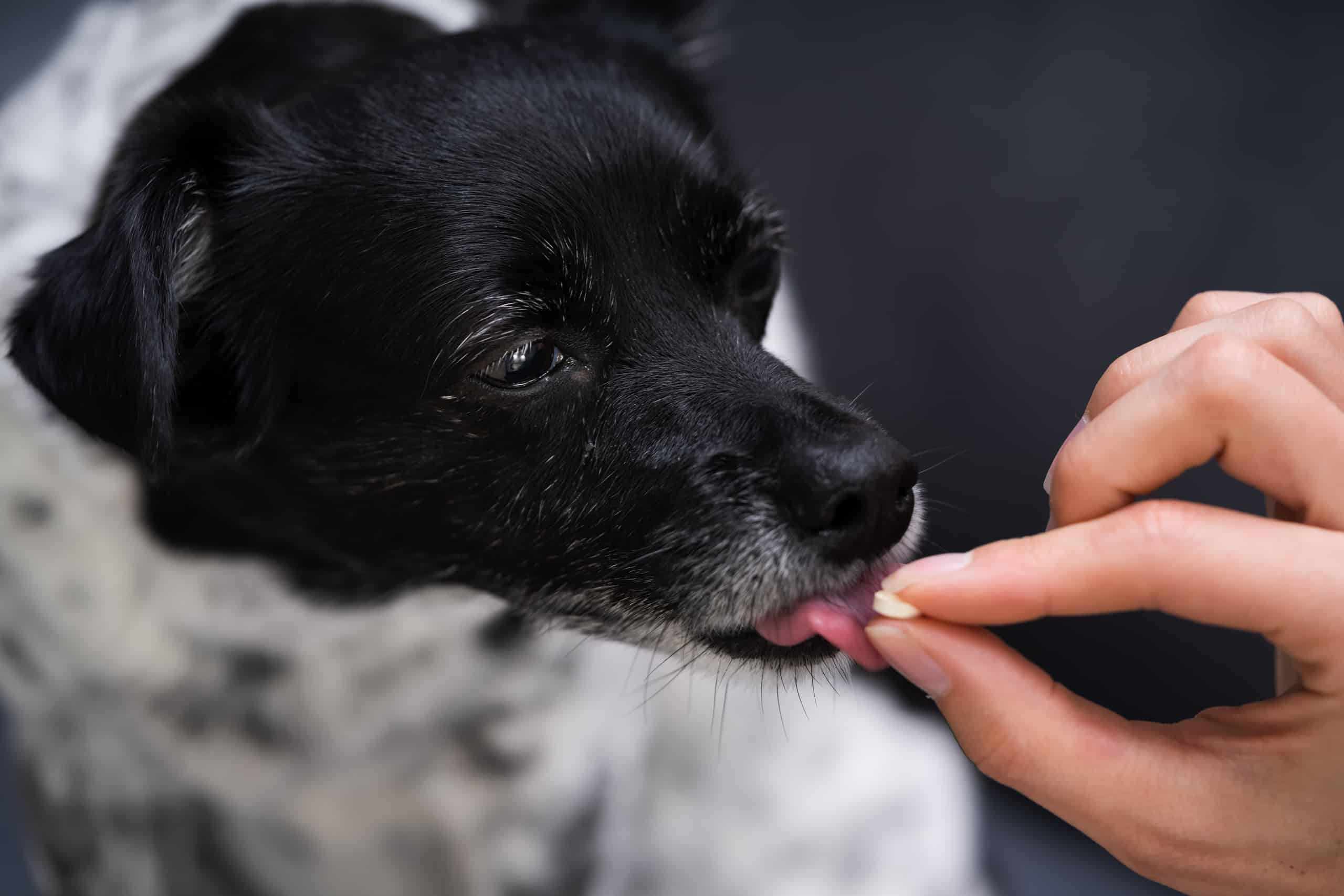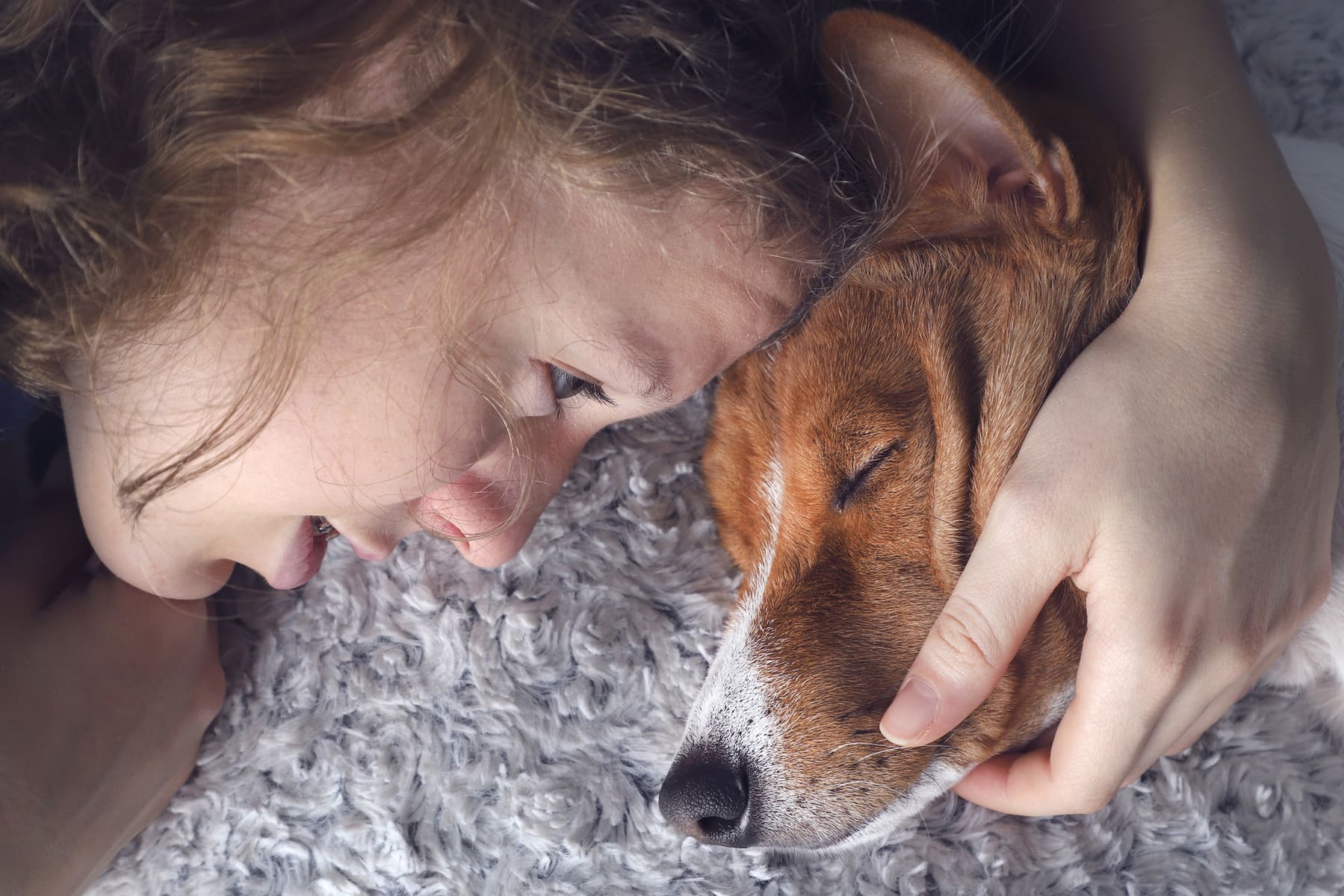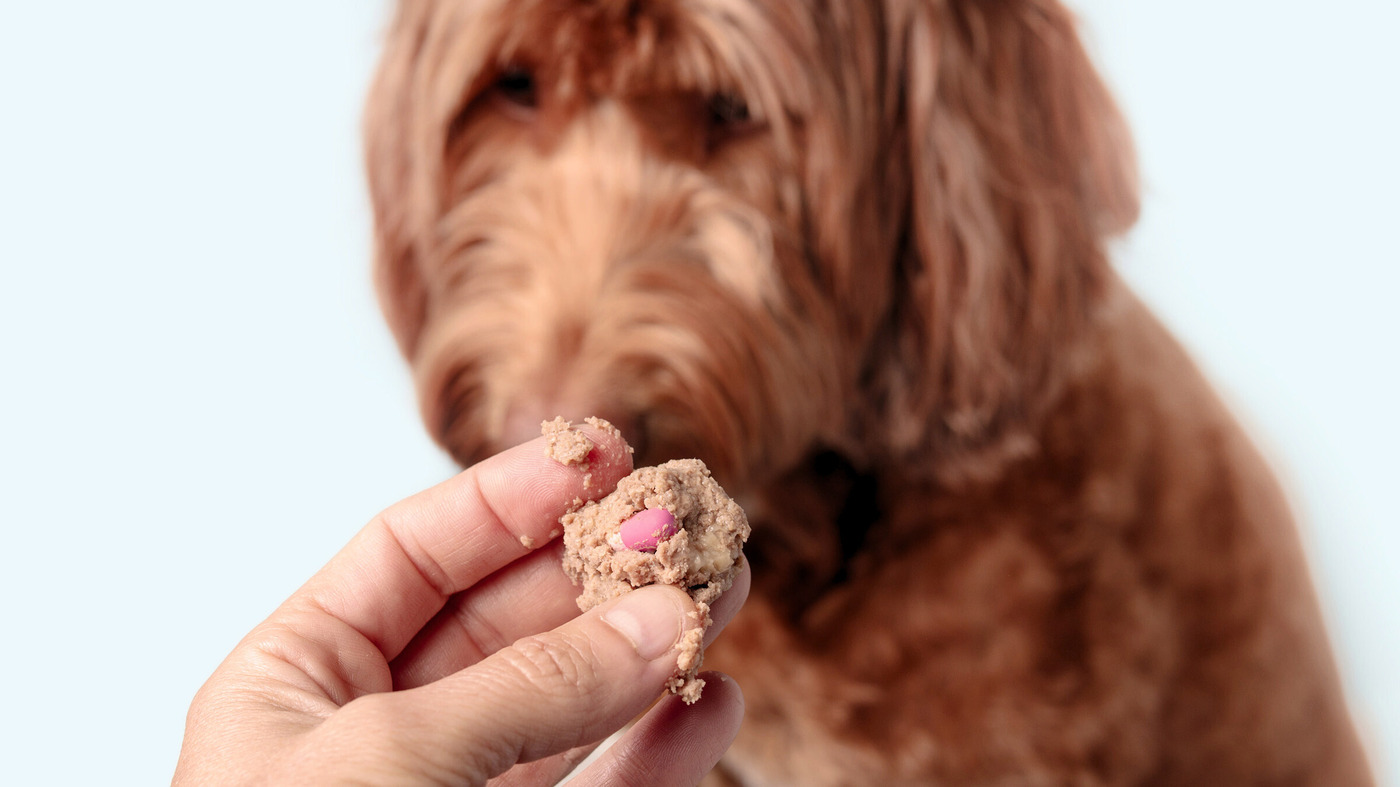Home>Health & Wellness>Common Health Issues>Muscular and Joint Health>How Do I Know When Arthritis Is Too Much For My Dog?


Muscular and Joint Health
How Do I Know When Arthritis Is Too Much For My Dog?
Published: February 9, 2024
Ensure your dog's muscular and joint health with our guide on recognizing when arthritis becomes too much for your furry friend. Learn the signs and symptoms to keep your dog healthy and happy.
(Many of the links in this article redirect to a specific reviewed product. Your purchase of these products through affiliate links helps to generate commission for Pawsomeoldies.com, at no extra cost. Learn more)
Table of Contents
Signs of Arthritis in Dogs
Arthritis is a common condition that affects dogs, particularly as they age. It can cause discomfort and reduced mobility, impacting their overall quality of life. As a responsible pet owner, it's crucial to be vigilant for signs of arthritis in your furry companion. By recognizing these indicators early, you can take proactive steps to manage the condition and ensure your dog's well-being.
Here are some common signs that may indicate arthritis in dogs:
-
Limping or Favoring a Limb: If you notice your dog limping or favoring a specific limb, it could be a sign of joint pain associated with arthritis. Dogs may also exhibit stiffness, especially after getting up from a nap or prolonged rest.
-
Decreased Activity: Arthritic dogs may become less enthusiastic about physical activities they once enjoyed. They might be reluctant to go for walks, play fetch, or engage in vigorous exercise due to joint discomfort.
-
Difficulty Rising: Dogs with arthritis may struggle to rise from a lying or sitting position. You may observe them hesitating or taking longer to stand up, indicating discomfort in their joints.
-
Behavioral Changes: Chronic pain can lead to changes in your dog's behavior. They may become irritable, restless, or exhibit signs of depression. Additionally, they might seek more solitude and avoid interactions that involve physical exertion.
-
Licking or Chewing Joints: Dogs may instinctively lick or chew at the affected joints in an attempt to alleviate the discomfort caused by arthritis. This behavior can lead to redness, irritation, or hair loss in the affected areas.
-
Muscle Atrophy: Over time, the muscles surrounding arthritic joints may begin to atrophy due to decreased use. This can result in noticeable muscle loss and weakness in the affected areas.
-
Appetite Changes: Arthritic pain can impact a dog's appetite. Some dogs may experience a decrease in appetite, while others may seek comfort in food and exhibit weight gain.
-
Reluctance to Climb Stairs or Jump: Dogs with arthritis may show reluctance or difficulty when climbing stairs, jumping onto furniture, or engaging in activities that require them to exert pressure on their joints.
It's important to note that the signs of arthritis in dogs can vary based on the severity of the condition and the individual dog's tolerance to pain. If you observe any of these signs in your furry friend, it's advisable to seek veterinary care promptly. Early intervention and appropriate management can significantly improve your dog's comfort and mobility, enhancing their overall quality of life.
Read more: When Is It Too Cold For A Dog With Arthritis
When to Seek Veterinary Care
Recognizing the signs of arthritis in your dog is a crucial first step, but knowing when to seek veterinary care is equally important. While some degree of joint stiffness and reduced mobility is common in aging dogs, persistent or worsening symptoms warrant professional evaluation. Here are the key indicators that should prompt you to seek veterinary care for your arthritic dog:
Persistent Discomfort
If your dog consistently exhibits signs of discomfort such as limping, reluctance to move, or vocalizing in pain, it's essential to consult a veterinarian. Persistent discomfort indicates that the arthritis is impacting your dog's well-being and requires professional attention.
Sudden Behavioral Changes
Abrupt shifts in your dog's behavior, such as increased irritability, withdrawal, or aggression, can be indicative of unmanaged pain. Dogs may express their discomfort through altered behavior, and addressing these changes promptly is crucial for their overall welfare.
Difficulty Performing Routine Activities
When arthritis interferes with your dog's ability to perform routine activities such as standing up, walking, or climbing stairs, it's time to involve a veterinarian. These challenges can significantly impact your dog's quality of life, and tailored interventions are necessary to alleviate their discomfort.
Noticeable Loss of Muscle Mass
A visible reduction in muscle mass around the affected joints is a concerning sign. Muscle atrophy can exacerbate joint instability and discomfort, underscoring the need for professional assessment and targeted interventions to prevent further deterioration.
Unexplained Weight Changes
Arthritic dogs may experience fluctuations in weight due to changes in appetite or reduced physical activity. Unexplained weight loss or gain should be promptly addressed by a veterinarian to rule out underlying health issues and ensure appropriate management of the arthritis.
Persistent Joint Swelling or Heat
Ongoing joint swelling, warmth, or tenderness should not be overlooked. These symptoms can indicate inflammation and require veterinary evaluation to determine the appropriate treatment approach and prevent potential complications.
Impact on Daily Enjoyment
If your dog's arthritis is impeding their ability to enjoy daily activities, such as playing, going for walks, or interacting with family members, it's time to seek veterinary care. Addressing these limitations can significantly enhance your dog's well-being and overall happiness.
Deterioration in Mobility
A noticeable decline in your dog's mobility, characterized by increased difficulty in standing, walking, or getting up from a resting position, warrants immediate veterinary attention. Timely intervention can help mitigate further mobility loss and improve your dog's comfort.
By remaining attentive to these indicators and promptly involving a veterinarian when necessary, you can ensure that your arthritic dog receives the tailored care and support needed to manage the condition effectively and enhance their quality of life.
Treatment Options for Arthritic Dogs
Managing arthritis in dogs involves a multifaceted approach aimed at alleviating discomfort, improving mobility, and enhancing overall well-being. When it comes to treatment options for arthritic dogs, pet owners have access to various strategies that can be tailored to their dog's specific needs. By collaborating closely with veterinarians, pet parents can devise comprehensive care plans that address the unique challenges posed by arthritis in their canine companions.
Weight Management
Maintaining an optimal body weight is paramount for arthritic dogs. Excess weight places additional strain on the joints, exacerbating discomfort and reducing mobility. Veterinarians may recommend tailored dietary plans and exercise regimens to help dogs achieve and maintain a healthy weight, thereby alleviating pressure on arthritic joints and enhancing their overall comfort.
Exercise and Physical Therapy
Strategic exercise routines and physical therapy can play a pivotal role in managing arthritis in dogs. Low-impact activities, such as swimming and gentle walks, can help maintain joint flexibility and muscle strength without causing undue stress on the affected areas. Additionally, targeted physical therapy modalities, including massage and range-of-motion exercises, can contribute to improved mobility and reduced discomfort for arthritic dogs.
Nutritional Supplements
Supplements such as glucosamine and chondroitin are commonly recommended for arthritic dogs to support joint health and reduce inflammation. These natural compounds can aid in preserving cartilage integrity and mitigating the progression of arthritis. Omega-3 fatty acids, renowned for their anti-inflammatory properties, are also beneficial in managing arthritic symptoms and promoting overall joint health.
Medications
In some cases, veterinarians may prescribe medications to alleviate pain and inflammation in arthritic dogs. Non-steroidal anti-inflammatory drugs (NSAIDs) are frequently utilized to provide relief from joint discomfort, enabling dogs to move more comfortably and engage in daily activities. It's crucial for pet owners to adhere strictly to the prescribed dosage and schedule while monitoring their dog for any potential side effects.
Orthopedic Beds and Supportive Devices
Creating a comfortable and supportive environment for arthritic dogs is essential. Orthopedic beds designed to cushion and relieve pressure on joints can significantly enhance their rest and recuperation. Additionally, supportive devices such as ramps and steps can facilitate easier access to elevated surfaces, minimizing the strain on arthritic joints during movements.
Acupuncture and Alternative Therapies
Complementary therapies, including acupuncture and chiropractic care, have shown promise in managing arthritis-related pain and promoting overall well-being in dogs. These holistic approaches can complement traditional treatments, offering additional avenues for pain relief and improved mobility for arthritic dogs.
Read more: How Much Is Cortisone For Dog Arthritis
Ongoing Monitoring and Adaptation
Regular veterinary check-ups are crucial for monitoring the progression of arthritis in dogs and adjusting treatment plans as needed. As arthritis is a progressive condition, ongoing assessment and adaptation of care strategies are essential to ensure that the treatment remains aligned with the dog's evolving needs and challenges.
By incorporating a combination of these treatment options, pet owners can effectively support their arthritic dogs in leading fulfilling and comfortable lives. Each dog's response to treatment may vary, emphasizing the importance of personalized care plans tailored to their specific condition and well-being. With dedication and proactive collaboration with veterinarians, pet parents can make a meaningful difference in managing arthritis and enhancing the quality of life for their beloved canine companions.

